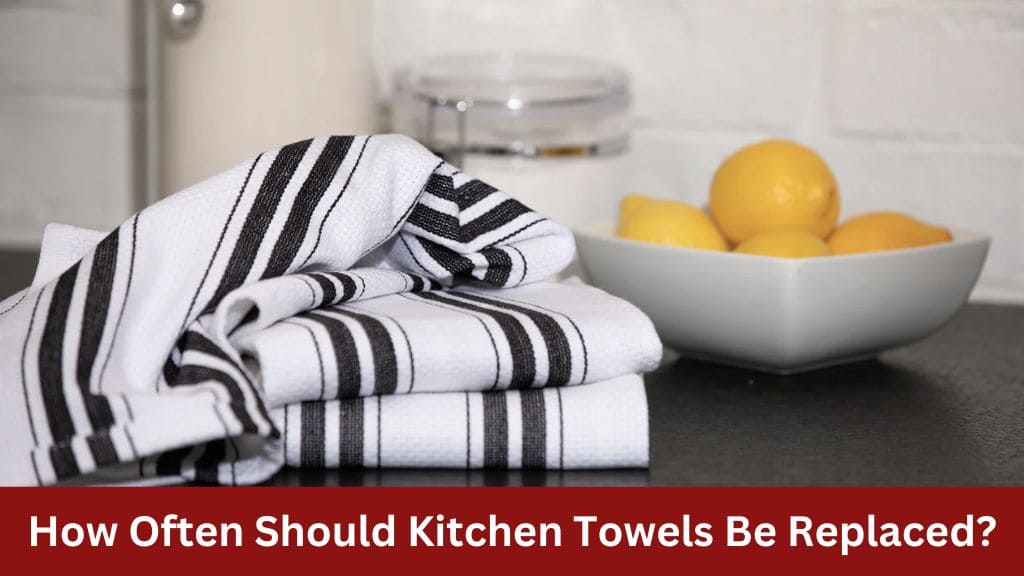Kitchen towels are indispensable in any kitchen, serving multiple purposes from drying hands and dishes to wiping countertops and cleaning up spills. However, their frequent use raises a crucial question: how often should kitchen towels be replaced? In this comprehensive blog post, we’ll explore the factors that influence the lifespan of kitchen towels, signs that indicate it’s time to replace them, and tips for maintaining hygiene and maximizing their utility.
Kitchen towels are one of the hardest-working items in the kitchen. They come into contact with various surfaces and substances, making them susceptible to dirt, germs, and odors. Regular cleaning is essential, but even with proper care, there comes a time when kitchen towels need to be replaced. This guide will help you understand when and why you should replace your kitchen towels to ensure your kitchen remains a safe and hygienic environment.
Why Kitchen Towel Hygiene Matters
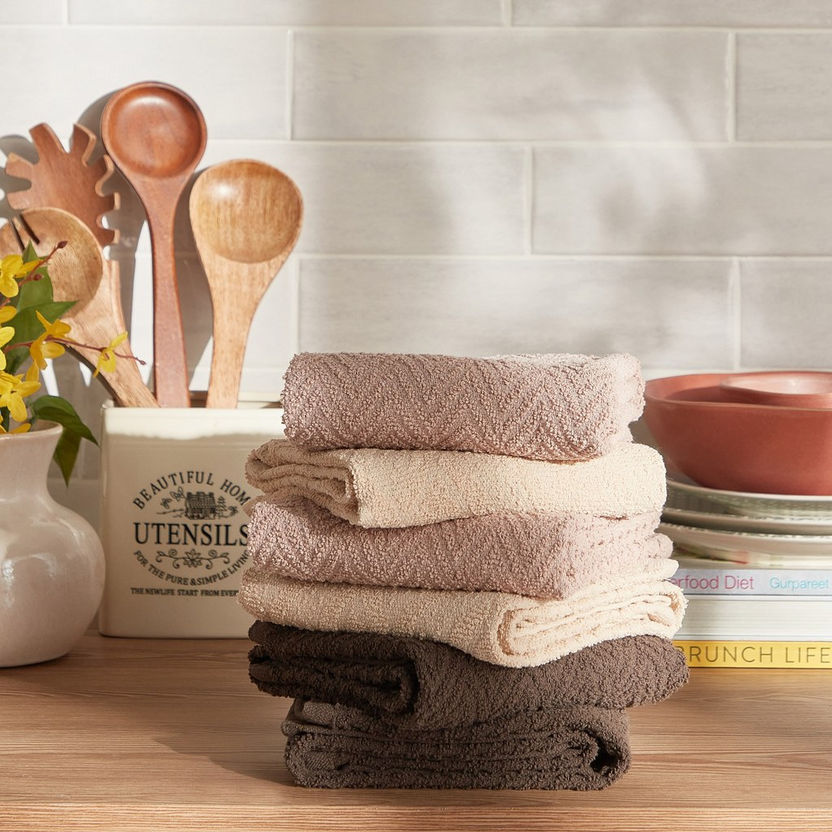
Kitchen towels can harbor a significant amount of bacteria due to their exposure to raw food, spills, and frequent use. A study by the American Society of Microbiology found that nearly half of kitchen towels tested after one month of use contained bacteria such as Salmonella, E. coli, Listeria, and Staphylococcus aureus. These bacteria can cause foodborne illnesses and infections, making it crucial to maintain clean kitchen towels and replace them when necessary.
The Risk of Cross-Contamination
Cross-contamination occurs when bacteria from one surface or food item are transferred to another. Kitchen towels can facilitate this process if not washed regularly or replaced when needed. For instance, using the same towel to dry hands after handling raw chicken and then wiping a countertop can spread harmful bacteria.
Maintaining a Healthy Kitchen Environment
A clean kitchen towel helps maintain a healthy kitchen environment. Regular washing and timely replacement of kitchen towels reduce the risk of spreading bacteria and ensure that your kitchen remains sanitary.
Factors Affecting the Lifespan of Kitchen Towels
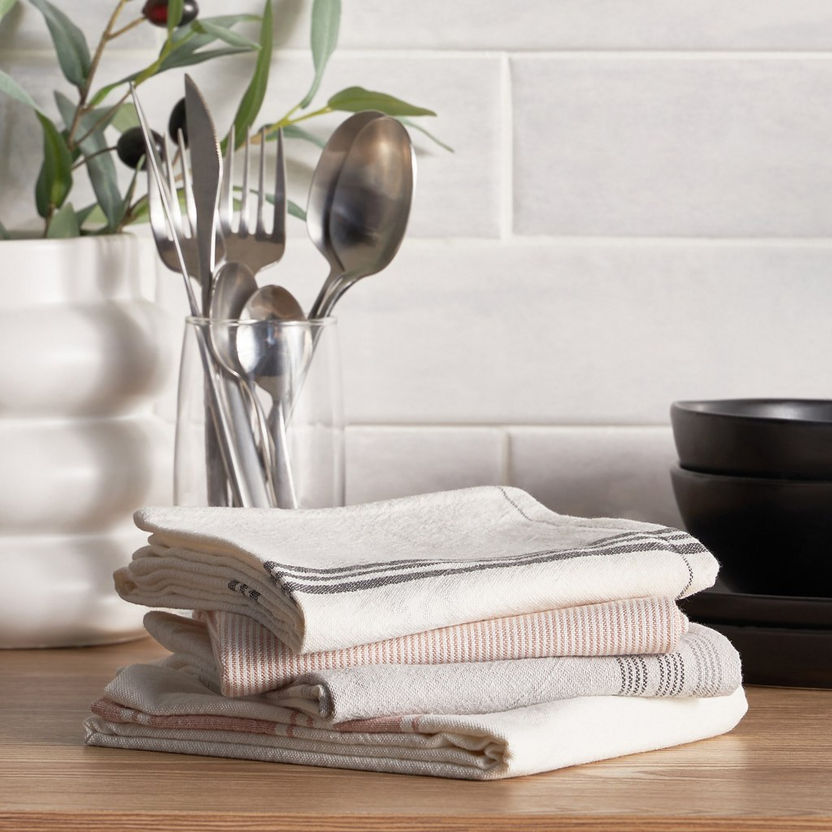
Several factors influence how often you should replace your kitchen towels. These include:
Frequency of Use
The more frequently a kitchen towel is used, the faster it will wear out. Towels used multiple times a day for various tasks will need to be replaced sooner than those used less frequently.
Type of Use
Towels used for heavy-duty tasks like cleaning up spills, wiping down surfaces, or handling raw food will wear out faster and become contaminated quicker than those used solely for drying hands or dishes.
Washing Frequency
Regular washing can extend the lifespan of kitchen towels, but improper washing can lead to faster degradation. Towels that are not thoroughly cleaned can develop persistent odors and harbor bacteria, necessitating more frequent replacement.
Fabric Quality
High-quality fabrics like tightly-woven cotton tend to last longer and maintain their absorbency and durability better than cheaper materials. Investing in quality kitchen towels can reduce the frequency of replacements.
Signs It’s Time to Replace Your Kitchen Towels
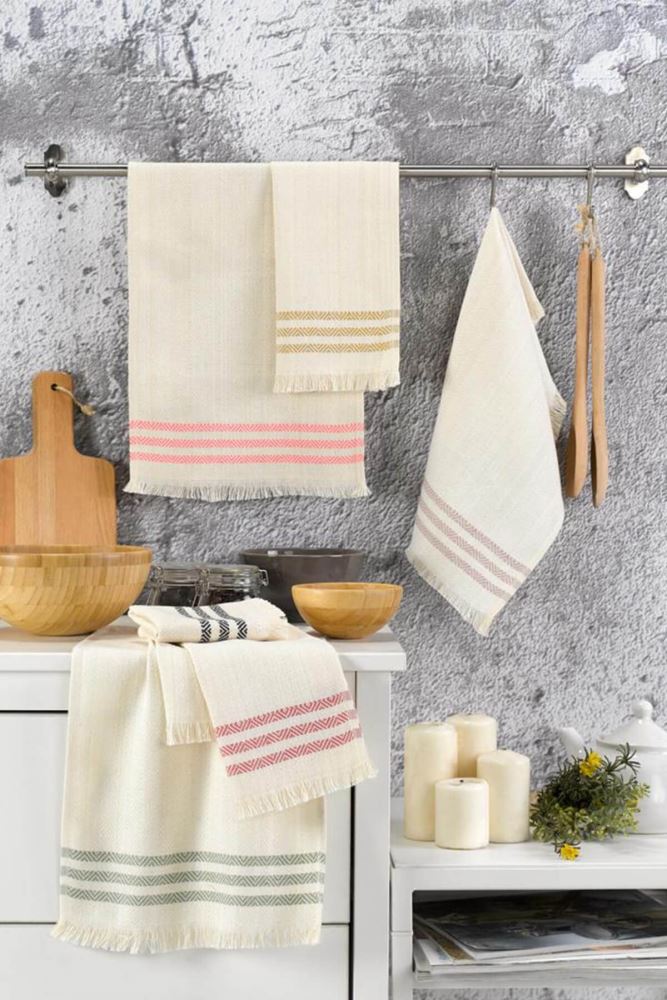
Knowing when to replace your kitchen towels is key to maintaining kitchen hygiene. Here are some signs to look out for:
Persistent Odors
If your kitchen towels retain unpleasant odors even after washing, it’s a sign that bacteria and invisible stains have set in. This indicates it’s time for a replacement.
Reduced Absorbency
Over time, kitchen towels lose their absorbency. If your towels are no longer effective at soaking up water or drying dishes, they need to be replaced.
Visible Stains and Discoloration
Stubborn stains and discoloration that do not come out after washing are signs that your kitchen towels are past their prime and should be replaced.
Fraying and Wear
Physical signs of wear such as fraying edges, holes, or thinning fabric indicate that the towel’s structural integrity is compromised, and it’s time to replace it.
Bacterial Contamination
If your kitchen towel comes into contact with raw meat or other high-risk foods and is not washed immediately, it’s best to replace it to avoid the risk of contamination.
How to Properly Care for Kitchen Towels
Proper care can extend the life of your kitchen towels and maintain their effectiveness. Here are some tips for caring for your kitchen towels:
Daily Washing
Wash your kitchen towels daily or after heavy use to prevent the buildup of bacteria and odors. Use hot water and a strong detergent to ensure thorough cleaning.
Avoid Fabric Softeners
Fabric softeners can leave a residue that reduces the absorbency of kitchen towels. Avoid using them when washing towels to maintain their effectiveness.
Regular Bleaching
For white towels, occasional bleaching can help keep them clean and free from stains. However, use bleach sparingly to avoid damaging the fabric.
Separate Laundry Loads
Wash kitchen towels separately from other laundry to prevent cross-contamination and ensure they receive a thorough cleaning.
Proper Drying
Ensure towels are completely dry before storing them to prevent mold and mildew growth. Use a high heat setting in the dryer or hang them in a well-ventilated area.
Choosing the Right Kitchen Towels
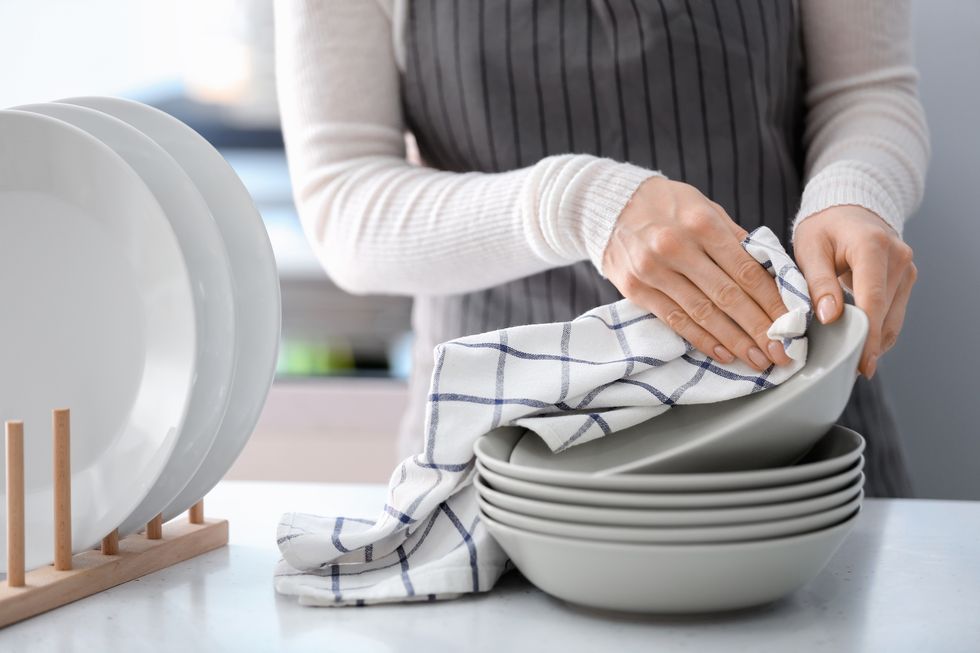
Selecting the right kitchen towels can make a significant difference in their longevity and performance. Here are some factors to consider:
Material
Cotton: Tightly-woven cotton towels are durable, absorbent, and effective at drying dishes without leaving watermarks.
Microfiber: Microfiber towels are highly absorbent and quick-drying, making them ideal for cleaning and wiping down surfaces.
Linen: Linen towels are less absorbent but dry quickly and are excellent for drying glassware without leaving streaks.
Size and Thickness
Choose towels that are appropriately sized for their intended use. Thicker towels are generally more absorbent, but thinner towels dry faster and are easier to wring out.
Durability
Invest in high-quality towels that can withstand frequent washing and heavy use. Look for reinforced edges and strong stitching to ensure longevity.
Purpose
Consider the primary use of the towel. Different tasks may require different types of towels (e.g., drying hands, cleaning surfaces, drying dishes).
Eco-Friendly Alternatives to Traditional Kitchen Towels

For those looking to reduce their environmental impact, there are several eco-friendly alternatives to traditional kitchen towels:
Reusable Paper Towels
Reusable paper towels made from materials like bamboo or cotton can be washed and reused multiple times, reducing waste.
Plant-Based Towels
Towels made from plant-based fibers such as bamboo or hemp are biodegradable and compostable, making them a sustainable choice.
Compostable Towels
Some companies offer biodegradable and compostable towels that are naturally anti-microbial and can be composted after use.
Repurposing Old Kitchen Towels

Instead of discarding old kitchen towels, consider repurposing them for other uses around the house:
Cleaning Rags
Old kitchen towels can be used as cleaning rags for household chores like dusting, wiping down surfaces, or cleaning up spills.
Pet Care
Use old towels for drying pets after a bath or as bedding in pet crates and carriers.
Craft Projects
Repurpose old towels for craft projects such as making reusable cloth wipes, stuffing for pillows, or creating handmade toys.
Outdoor Work
Keep a stash of old towels for outdoor tasks like washing the car, gardening, or as mechanic rags.
Conclusion
Maintaining clean and hygienic kitchen towels is essential for a healthy kitchen environment. By understanding the factors that influence the lifespan of kitchen towels and recognizing the signs that indicate it’s time to replace them, you can ensure your kitchen remains safe and sanitary. Regular washing, proper care, and choosing high-quality towels can extend their usefulness, while eco-friendly alternatives and repurposing old towels can reduce waste and promote sustainability.
By following these guidelines, you can keep your kitchen towels in top condition and make informed decisions about when to replace them, ultimately contributing to a cleaner and healthier kitchen.

